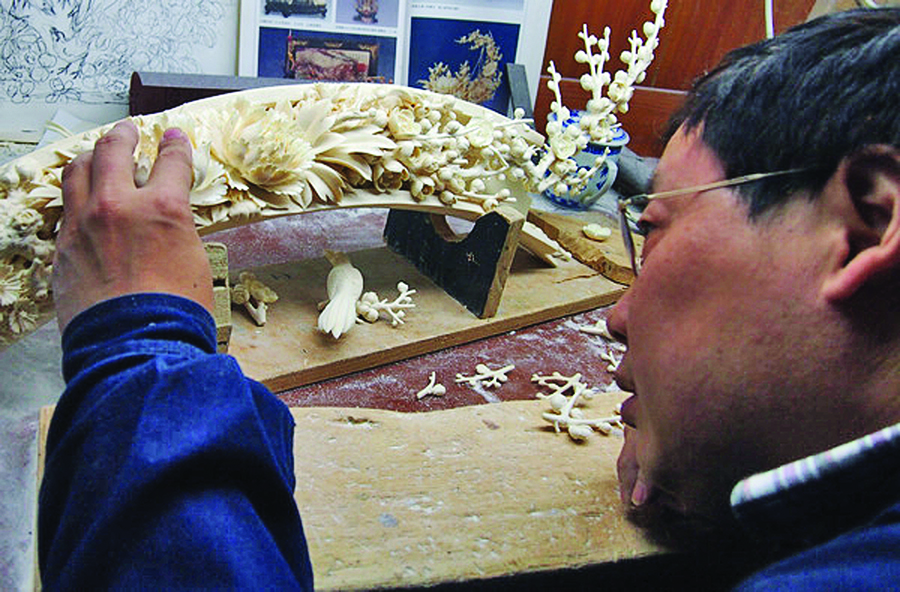Ivory ban brings the UK in line with China
By Cecily Liu in London | China Daily | Updated: 2018-04-20 09:58

Endorsement
Many industry specialists have endorsed the government policy.
"The UK government has taken a momentous step," said John Stephenson, CEO of the charity Stop Ivory. "The proposed ban, with its narrow and clear exemptions, places the UK at the forefront of the international determination to halt the extermination of elephant populations by banning trade in ivory."
Charlie Mayhew, CEO of the charity Tusk, added: "We are delighted that the government has listened to our concerns and, given the overwhelming public response to their consultation, is now moving decisively to introduce tough legislation to ban the trade in ivory in the UK."
The consultation, which ended in December, received more than 60,000 responses from British groups and individuals. The overwhelming majority of those commenting were in favor of a total ban on the sale of ivory, an industry that has been in existence for thousands of years and which peaked in the 19th century on the back of the Industrial Revolution and the penetration of sub-Saharan Africa by European traders.
Ivory is a hard white material that started out as the tusks and teeth of animals. It was widely used in the past for a range of things including the making of false teeth, piano keys, chess pieces, and all kinds of decorations. The rising value of ivory led hunters to almost wipe out entire species in their quest for it.
Between the early 1900s and 1979, the elephant population in Africa fell from an estimated 5 million to 1.3 million, and between 1979 and 1989, it halved again.
Some estimates suggest 35,000 elephants are currently being killed each year to fuel the ivory trade, putting populations under severe pressure.
The British government banned ivory trading in 1990, but back then exempted the sale of ivory antiques made before 1947, which created opportunities for ivory traders to make new ivory look old and continue selling it.
The age of pieces can only be accurately accessed through carbon dating, something that is expensive to carry out. Most antique pieces have been passed down through the generations, so do not come with certificates, making the sale of fake antiques even easier.
China had been the world's largest market for ivory for many years before Beijing introduced a ban on all ivory trade in 2017.
At a meeting between President Xi Jinping and then-US President Barack Obama in 2015, the two leaders decided to take action.
Over the following three years, China gradually implemented its ivory trade ban and, by March 2017, the Chinese government had closed 67 of its licensed ivory facilities, including 12 of its 35 ivory-carving factories. It had also shut down more than 130 ivory retailers. By December 2017, the ivory trade in China was completely banned.
























